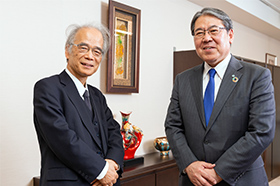Kumon selected as a social business partner of BRAC in Bangladesh
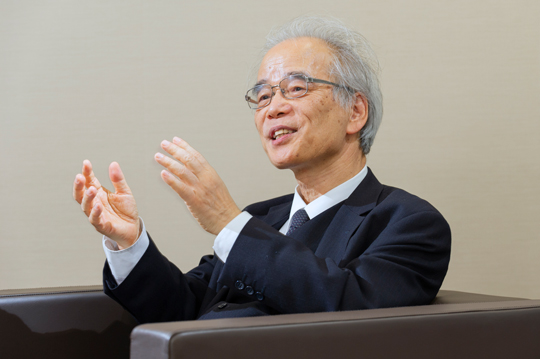 |
Prof. Kasahara (hereafter, Kasahara): Sir Abed of BRAC already knew about Kumon through his wife’s relative, and was interested in Kumon’s learning method from around that time. When I talked about Kumon with Sir Abed in Bangladesh, he told me, “I want to do a social business in cooperation with a Japanese educational company.” He likely said so in part because he was running the BRAC School, which supported children who couldn’t go to school for financial reasons.
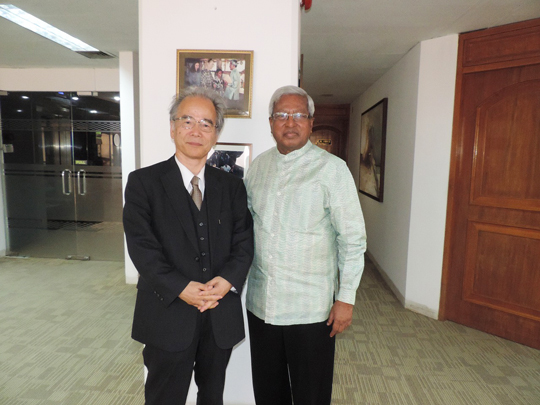 |
Ikegami, KIE (hereafter, Ikegami): Why did Sir Abed choose Kumon to partner with, from among Japanese educational companies?
Kasahara: Regarding the ideas behind Kumon’s educational business that attracted me, there are two things that I told him. First, children who know the joy of finding answers after some struggles have the potential for tremendous growth. Second, children who know the joy of learning and have a habit of studying on their own grow further. I still remember how Sir Abed changed his facial expression when I told him about these things.
Ikegami: It seems that Sir Abed understood the essence of Kumon. I also met him several times and found that BRAC and Kumon had a common philosophy. I believe this is a point that greatly promoted our collaboration.
The first Kumon Center in Bangladesh opened through collaboration with the world’s largest NGO, BRAC!
Possibility for activities by BRAC and Kumon to expand throughout the world
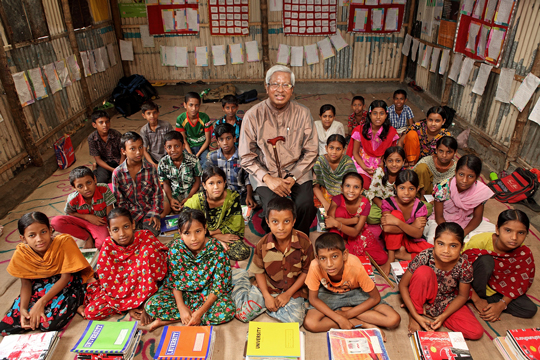 |
Kasahara: The BRAC School, which is operated for poor children, has contributed to the development and stability of Bangladeshi society through education. Then, Kumon and BRAC hatched the idea of collaborating to provide Kumon learning through the free BRAC School for the poor in a sustainable way while ensuring profit through Center management targeting of middle- or high-income students. I find this an innovative scheme to work for the education of children who are not able to go to school, not in a form of charity or voluntary work, but as a social business.
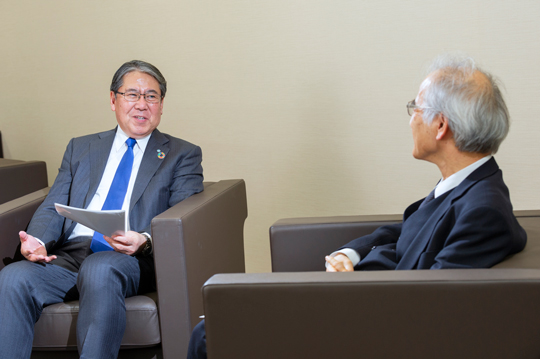 |
Ikegami: Thank you very much. I believe that these activities realized in Bangladesh, through collaboration with BRAC, will expand further, or we must expand them.
Kasahara: BRAC has offices in 14 countries and has been recognized as an NPO of high status in African countries. In Africa, like in Bangladesh, poverty has been reproduced because people are not able to receive primary education. I believe there will be a good possibility to solve such a social issue if Kumon works with BRAC in various places.
Ikegami: Sir Abed committed himself to our activities to the end. Although he was the top of the organization, he checked the details of the project carefully and gave sharp opinions in meetings. It was impressive that they created a dignified atmosphere in those meetings. I could see that he trusted Kumon that much and I hope to execute his will so that we can continue this project further.
This January, the new management of BRAC and Kumon’s project members had a meeting to share the importance of the project and their passion for it. I’ve heard that the current representative, Mr. Asif, also has great expectations for this project, as Sir Abed did.
Sir Abed’s last words: “How’s Kumon?”
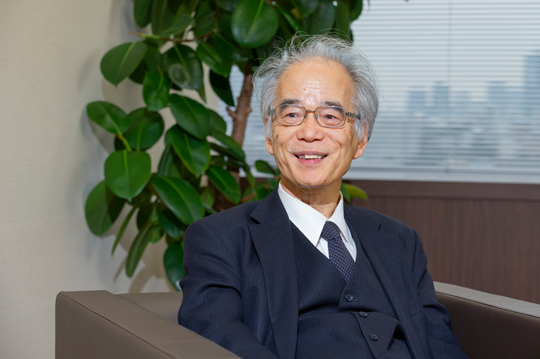 |
Kasahara: This is an episode that Mrs. Abed told me. Just before he passed away in bed, he could hardly speak due to his sickness of brain, but the last question she could catch from him was, “How’s Kumon?” It seems that he was concerned about Kumon until the last minute of his life.
Ikegami: I am so moved, and it is my great pleasure to hear it. At the same time, I also feel a great responsibility.
Kasahara: When you explain about your company to students, you have mentioned that students get excited by this BRAC and Kumon project. This must be something that represents the essence of this project. What is your opinion about these things?
Ikegami: First, this project can contribute to a country, Bangladesh. We can create a scheme for collaboration with BRAC and may be able to provide the system not only to Bangladesh, but other countries as well. Furthermore, it also contributes to the fourth goal of SDGs, “equitable quality education for all.” This is also an essence of our business. It was our great achievement that we could make our social contribution visible by collaborating with BRAC.
Sir Abed once told us about an organization that had been in business for centuries. He mentioned that in Europe, only 33 out of 500 organizations had been in operation since the 17th century, and most of them were universities. Sir Abed told me that, “Universities last long because personnel development is indispensable in our society and they are autonomous organizations. Kumon will also be desired by society and last for a long period of time.” I believe he wanted to insist that there should always be organizations that contribute to society through education all over the world.
Kasahara: It is because education is the greatest means to stop the reproduction of poverty. I even think that education could be the first one among the SDGs. I have a great expectation for the future of Kumon, which executes the will of Sir Abed.
Profile[Kiyoshi Kasahara]
Principal of Atomi University. Completed his doctoral degree in sociology at the Graduate School of Sociology, Keio University. From 1978 to 1980, he studied at the Faculty of Economics at the University of Belgrade in Yugoslavia. In April 1986, he was appointed as an associate professor of sociology at Rikkyo University. After serving as a professor of sociology at the same faculty, a professor of management, and vice principal, he has been working in his current position since 2018. He has written many books, including “Changes in Self-Management System and Social Integration” (Jichosha), and “Socialism and Individuals – From Yugoslavia and Poland” (Shueisha Shinsho).

